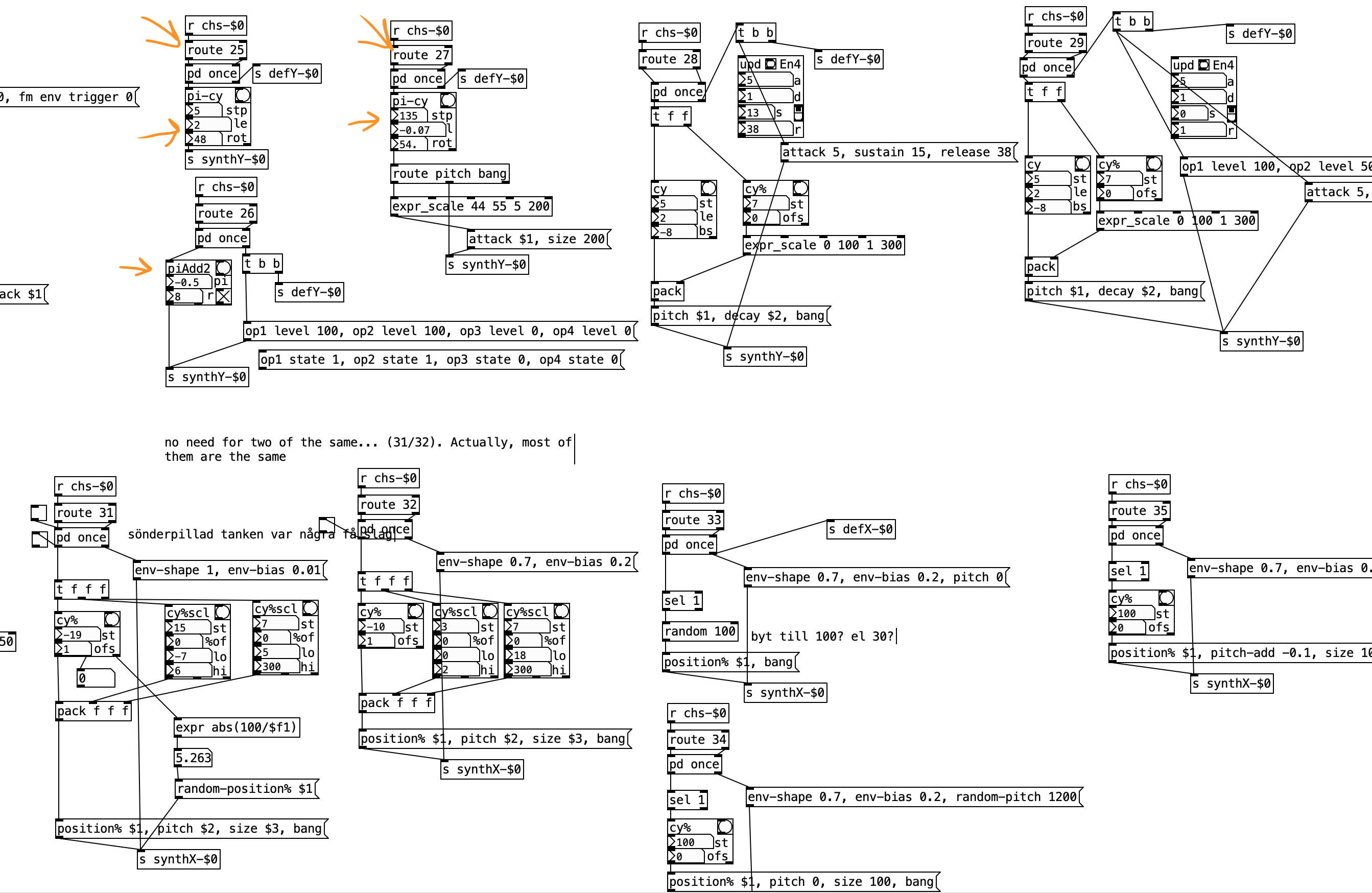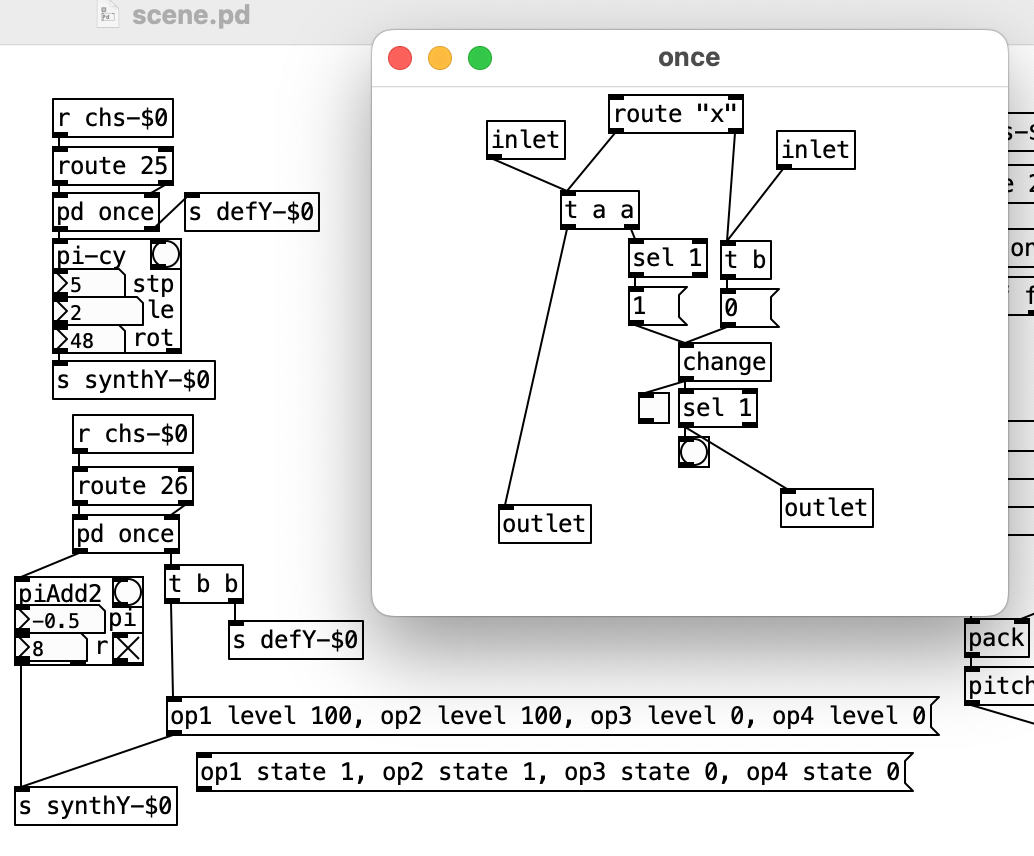@cfry I think variables might be the best way to go about this even though they do not give you your easy to read argument, but you can just use the name of the text to show that and have the text as an argument? You could also use a single text for all instances, have each one execute just the code that is relevant to them, this has the advantage of keeping it all in one place and you will never have to remember what was in the other texts but you could end up having to scroll a whole lot more. Could also go with a startup script which all instances in a patch would run at startup, a way to setup the environment and create globals, setup initial state of each, load programs into them, etc. Having a master instance which controls the rest might is also a possible solution, like the control track some trackers have, it would be able to feed each instance shared values and then they would react on that data as their code tells them. Other solutions I have come up with move things away from the tracker style and towards it being a scripting language, so it would greatly change how you interact with the abstractions and your entire workflow, which I am not sure you want to do?
I should have time to get my computer setup tomorrow so I can get back to patching, on Friday or Saturday (assuming thing go well with the computer) I will throw a few demos together for you to play with so you can get a better idea.
Or maybe just have arguments be code, at startup each instance runs their arguments, then you could do numbered groups with an if statements or a case statement, that would probably work best with the startup script idea so you don't have to have the exact same thing repeated in every instance.



